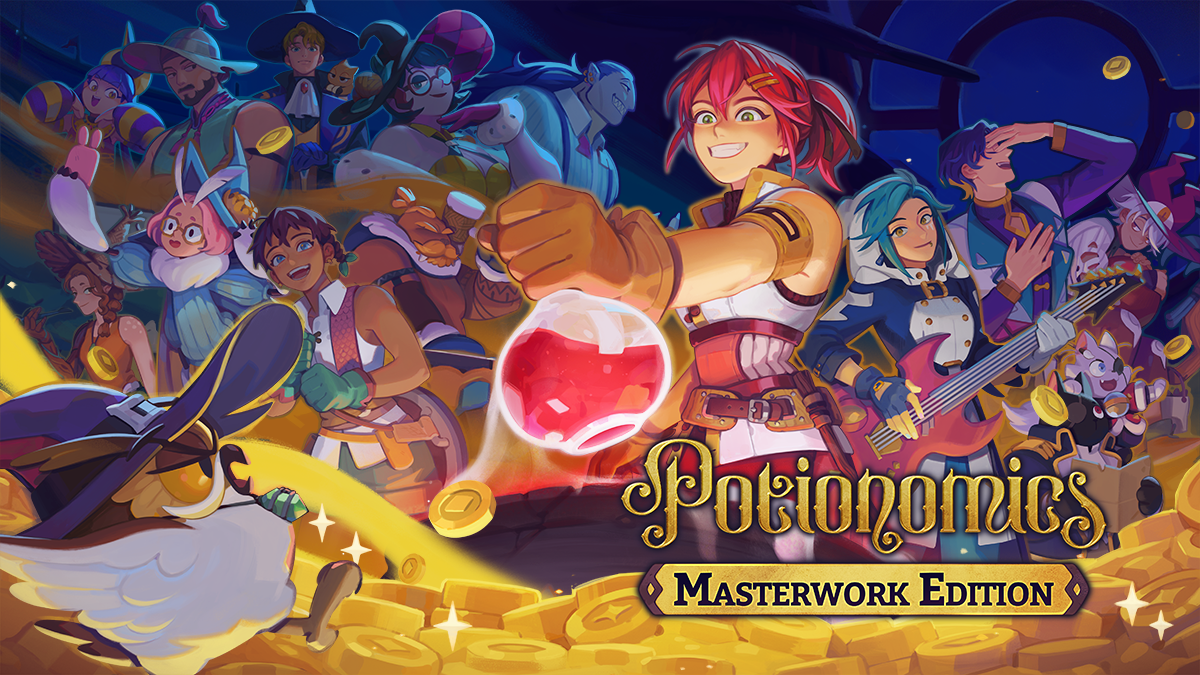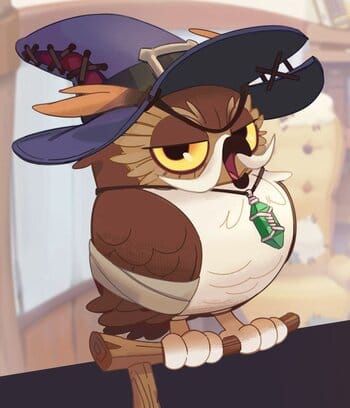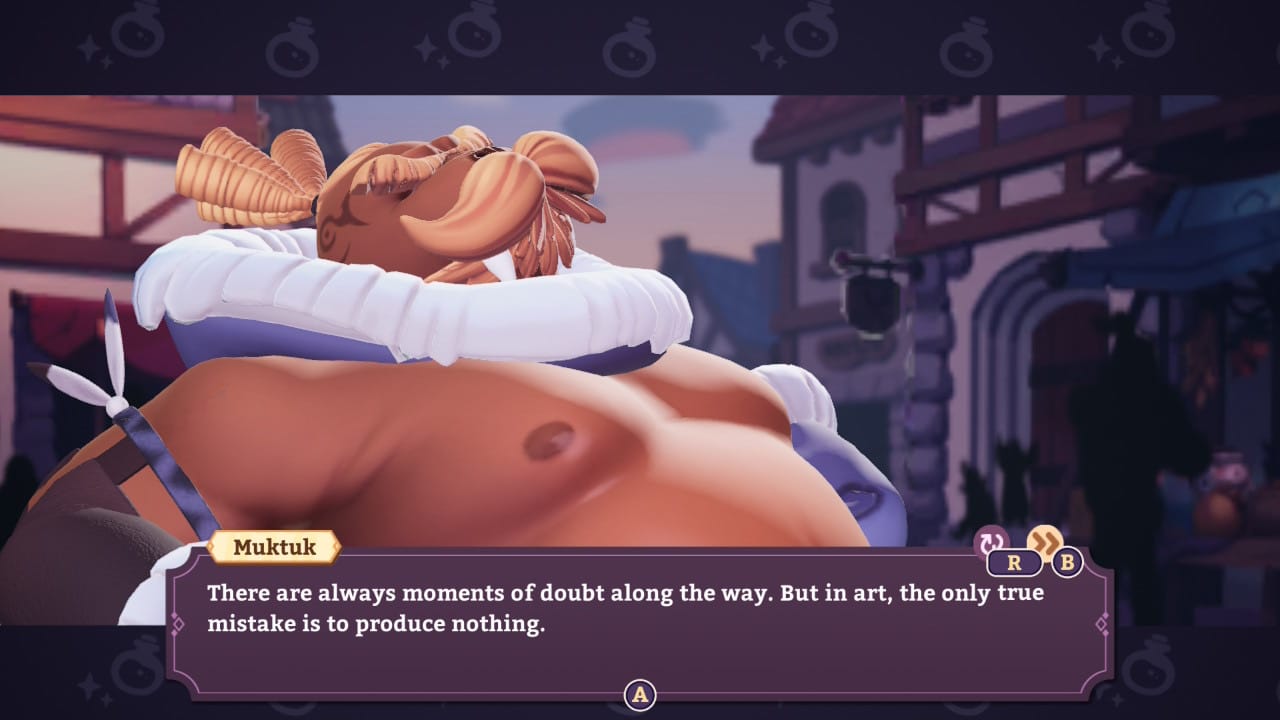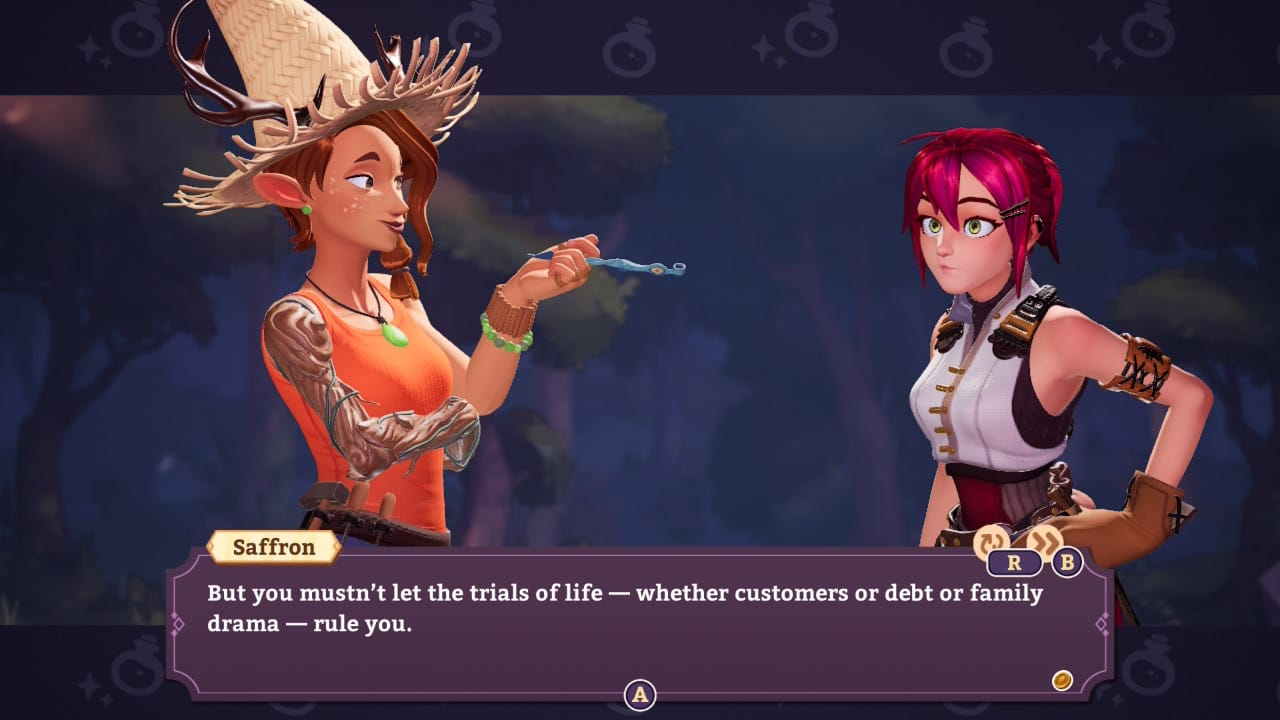Potionomics: a concoction of Commerce and Camaraderie
From the get-go, I was hooked on the colorful characters, the varied art styles, excellently animated (and voice acted) interactions, and the multifaced gameplay.

Over the last few weeks, I've had a new hyperfixation. A game that's hovered on the edges of my awareness for months was recommended to me and, noticing that it had been released for my gaming platform of choice (Nintendo Switch), I had run out of excuses not to try it. Well, I'm glad for that – otherwise I'd have never discoverd the charming, cozy, and sometimes zany world of Potionomics!
Originally released back in 2022, this indie gem by Voracious Games (published by Xseed Games) is part fantasy card battler, part business sim and part cozy dating sim, brewed together and bottled up to potent effect. The version released on the Switch is the 'Masterwork Edition', which comes pre-bundled with a DLC package, as well as a slew of updates that refine the original title into something really special.
In Potionomics, you take on the role of Sylvia, a freshly-graduated-from-college potions witch, who suddenly finds herself inheriting a shop on the remote island of Rafta from her recently-deceased uncle. Things turn out to be far more complicated than she realizes upon arrival – and soon the player is thrust into a competition of brewing and salesmanship that makes up the core of the main storyline.
From the get-go, I was hooked on the colorful characters, the varied art styles, excellently animated (and voice acted) interactions, and the multifaced gameplay. The first few days of the serve as a tutorial to the various aspects of the game itself:
- Potion brewing & shop management
- Haggling with buyers
- Interacting with vendors and building relationships
That's a lot to take in at first, but luckily for Sylvia (and for us), she's guided by a talking owl that's taken up residence in the rafters, and who seems to know quite a lot about both her late Uncle and running a potions shop...

Lately, I'd been in a bit of a creative and career rut. Working part-time to shore up the bank account is never a long-term strategy (on it's own, at least), and I had been struggling with the motivation to create, and the drive to sustain it. A string of half-hearted attempts at building something worthwhile kept coming undone before I could see any real progress, and despite my efforts, I felt like I was running on a human-sized hampster wheel – sweating up a storm, but going nowhere, fast. Customer service has a way of wearing down one's energy as well, so even on the social front, I was feeling tapped out.
What I'd been missing was inspiration, and a sense of progress; even trying to relax into a book or game was proving difficult as the pressure started to pile up on me to just do something. All throughout, I hadn't realized I was putting all of this on myself, and not letting myself simply enjoy the process. Sometimes, that kind of insight comes to you from unexpected places.

As I delved deeper into the myriad storylines of the merchants, craftspeople, heroes and other characters that introduce themselves to Sylvia, I started to take more notice of the things they discussed. Each (romanceable) character faces their own struggles, only gradually revealed to the player through choosing to interact and deepen the relationship. Though the reponses you can give don't always line up perfectly with what you might want to say, every discussion feels heartfelt and real in a way that is...difficult to pull off.
While I was helping the other characters with their problems, I was getting nuggets of wisdom in return. In the game, these took the form of cards that represent haggling strategies. But on a deeper level, much of the advice that's given feels applicable to real life, as do the challenges faced by the characters you befriend. You don't have to be trying to keep a potions shop afloat on a magic island to understand Mint's Imposter Syndrome, or Muktuk's Perfectionism. Much like in real life, every character in Potionomics has something to teach, and something to learn. When you first meet the reclusive carpenter Saffron, for instance, she reminds you to be good to yourself and practice self-care, recommending meditation. Given how chaotic the world has felt of late, that simple reminder can be quite powerful.

I didn't realize just how much I needed a game like this until I was deep into a second run (I romanced the rockstar bard Xid this time around), and stopped to realize just how connected to the colorful cast of characters I'd become. At some point, I'd stopped prioritizing interactions based on whose cards I was trying to get, and instead started trying to help everyone with their problems. Not only did doing so help improve my own skills in-game, but it actually gave me more confidence in solving my own, real-world problems.
The social aspects of Potionomics are a powerful reminder of how much we all need each other. No one person is an island, and no one does anything grand entirely on their own – we all need help, from time to time. It's a reminder to make the time for your friends, family, and those closest to you, because that's what makes all that we do in our lives worth it.
In addition to the story elements, the mechanics of brewing, selling and haggling are quite immersive. To date, I've clocked hours trying to find that perfect balance of magimins (color-coded components of magic that all potions 'boil down' to ratios of), while ensuring that the final product is as appealing as can be for Sylvia's potential customers. Running around town to take care of various errands takes time that could also be spent at your shop, so the challenge becomes balancing work and life – hmm, that sounds familiar, somehow...
At any rate, the game is not without its shortfalls. In the version I played, a frustrating glitch would sometimes cause the cursor to freeze when I was visitng certain merchants, resulting in lost progress when I inevitably had to hard reset the game. The difficulty curve of increasingly stringent potion-making requirements towards the end of the main story also seemed to fall off in repeated runs of the game – although perhaps I just had gotten too skilled by then, permitting the bit of self ego-boosting.
But the minor complaints I could muster are entirely outshined by the vibrance of the world that Potionomics invites you to play in. With a cast of complex and interesting romanceable characters, fun, intuitve gameplay, and witty commentary on modern capitalism, it's a joy from the first minute till the credits. So come take a visit to the island of Rafta: brew some potions, make some money, and do some Potionomics! You might just find more than you bargain for.
Potionomics: Masterwork Edition is available for the Nintendo Switch, and the original version is on Steam.
